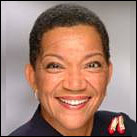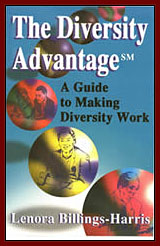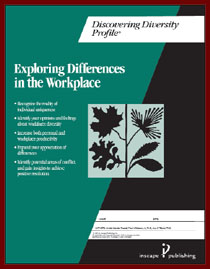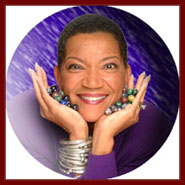Lenora Billings-Harris, President of the National Speakers Association

Lenora Billings-Harris, CSP is an internationally recognized speaker, multicultural diversity expert, and author with more than twenty-five years experience in the public and private sectors. She served as an adjunct professor for Arizona State University, and is currently on the adjunct faculty of University of North Carolina-Greensboro. Lenora has presented to audiences in South Africa, Spain, Germany, Belgium, Russia, Ukraine, Mexico and Canada.
Lenora received her MA from The University of Michigan and her BS from Hampton University. She presently serves as President of The National Speakers Association, and the board of Win Win Resolutions, a non-profit organization in North Carolina that teaches k-12 students how to resolve conflict without violence.
Lenora is the recipient of numerous awards and recognitions for her business successes as well as her civic activities. A few include being listed in the International Who's Who of Professionals, Who's Who in the West and Outstanding Young Women of America. She has won the Outstanding Marketing Awards from, formerly Carlson Learning Company, now Inscape Publishing, eight times.
Lenora Billings-Harris' gentle gracious demeanor immediately puts people at ease. She is clearly knowledgeable and obviously very good at what she does, yet she is generously accessible.
Lenora's candor about the challenges that she faced growing up is one of the things that allows for people to experience personal breakthroughs in her presence.
Lenora is sensitive and compassionate, she is power without force and very committed to the work that she does.
DR: Tell me about your life and about your work.
LBH: My work is one hundred percent devoted to diversity. By that I mean diversity in the work place or diversity in the market place. I realize that is why I was put on this planet. I am one of the lucky people because I feel like I am doing the work that I know I was meant to do.
Someone asked me a couple of days ago if I thought that there was anything that had happened in my childhood that caused me to do the work that I do. I had not really thought about it much but what I have come to know is…
I came from what they used to call a "broken home". I hate that term. I was not raised by my father and mother. I was raised from age two to ten by my paternal grandparents. My father had custody of me which was extremely unusual in the fifties. I remember as early as five years old having little arguments with my grandfather when he would say something that, by today's standards, would be called biased or prejudice. I would just kind of fuss with him and let him know that he didn't make sense to me.

The Diversity Advantage: A Guide to Making Diversity Work
This book represents a conversational approach to sharing critical information about diversity. Using a question and answer format for easy reading, this book is filled with practical tips and dozens of resources to help you learn how to increase respect and inclusiveness.
Click here to learn more.
I guess it was always in my bones to do this kind of work.
I didn't have a mother to go to school or a father to go to school. That was one of the ways that I knew I was a bit different than some of the other kids that I played with on the playground.
I also have a lazy eye and when I was a child it was very crossed. As you know, children can be very brutal and so I had to grow up with kids calling me "four eyes" and "cross eyes", so I think that there was a part of me that always related to people who didn't quite fit in.
I did not even know that college was any part of a possibility for me until I was about fifteen. It was never in my thought process because I didn't come from a family where there were college graduates but my dad did something that, in retrospect that was very good for me. He bought a home Passaic, New Jersey.
I started living with my father and my step mother when I was ten, so, my dad bought a home in Passaic which had a very good school system at the time and that was the primary motivating factor for him. By the time we moved to Passaic I was fourteen. At that time I started having kids in my class who did not know that there was any choice other than to go to college. Just being surrounded by kids who had a different view of the world, by fifteen, I started thinking that there may be some other possibilities here.
I knew my parents couldn't pay for college but I had good grades and I started learning that you could get scholarships and things like that so by sixteen I was very determined that I was going to go to college.
I went to college and majored in Home Economics Education because there were no counselors that could advise me at all. I had decided that I wanted to go to a Black college so I went to, what was then Hampton Institute. It is now Hampton University. After that I taught high school for a couple of years and then I got married. I moved to Michigan when I got married and the teachers were on strike. I thought "I don't know a thing about unions and I don't want to get involved with all of that. But, as the universe would have it, a position opened up at the University of Michigan in their Graduate school of Business, Executive Development Center. I had never heard of adults going to seminars and workshops because when you are in the public sector you know very little about what happens in the private sector. Well I discovered that adults like to keep learning! Working in that division, I recognized that I just loved being around adults who wanted to learn how to do their jobs more effectively, especially on the management side and on the "people development" side.
While I was in Michigan, I went back to school and got my Masters degree in Adult Education with a heavy focus on business. I continued to work in that department until I got promoted as high as I could go which was program director. By that time I was responsible for several seminars that were promoted throughout the country. These were big companies like Citi Corp that, in their succession planning, when their managers would get to a certain level, they had to come to these courses.
I started being exposed to business people and they started giving me job offers. My husband and I had to, very quickly, decide whose career we were going to follow because he was in college athletics. We deduced that there were more corporations than there were colleges and universities so that it probably made sense to follow his career because I could find a job easier than he could. So we did that and that enabled us to move around a good deal.
While I was still in Michigan, I left the university eventually and went to work for General Motors. I started delivering management development programs to dealership owners and their managers.
Now picture this:
This was in the mid-seventies, I was twenty six. So, twenty six, female and Black, teaching middle-aged white guys how to run their business. Little did I know that I was getting my next big dose of diversity in the work place.
It was a great experience because I was so different than what the participants had expected. I was not like their mothers, their daughters, their girlfriends; they could not put me in any box. Consequently, I had a great time. They were polite, although it usually took them about an hour to realize that I knew what I was talking about. I never had any problems at all! In fact, some of the problems that my White female counter parts had, I didn't have. I didn't have people trying to "pick me up" and that kind of stuff.
I worked for General Motors for a few years and then we moved to Philadelphia. My husband became the athletic director at the University of Pennsylvania. Then I joined Cigna Corporation. I had various responsibilities in the training department and in the Human Resources department. By the time I left there I was Director of Human Resources for one of their divisions. That gave me a great opportunity to develop and broaden my skills. By that time I also realized when were getting ready now to move to Phoenix, it was getting harder to find a position because of how high I had risen in the organization. It wasn't quite as easy to hop from one company to another one.
When we moved to Phoenix I decided that I wanted to start my own business.
I started my business and I was primarily doing all kinds of training and development. I really didn't know that public speaking was actually a profession and that there were lots of people out there doing that.
I eventually learned about an organization called the National Speakers Association (NSA). After two years of someone really nagging me to join, I finally joined. I realized that it was a perfect organization for me because it is an organization of people with all types of expertise who come together because one of the ways that we deliver our message is through professional speaking.
I joined the NSA and I got active in the local chapter and I eventually sat in various leadership seats and this month I will become President of the National Speakers Association. I am the first person of color to be president of the NSA.
That is pretty much the Readers Digest version…

Lenora's Most Popular Seminar
THE DIVERSITY ADVANTAGE:
TURNING BARRIERS INTO BRIDGES
Presented by
Lenora Billings-Harris, CSP
This highly interactive, thought-provoking yet fun program provides an opportunity for participants to explore the biases of our society's "isms", such as racism, sexism, ableism, and ageism, as well as homophobia and other prejudices that impede productivity in the workplace, participants of this program will be better equipped to improve their cultural competencies to enhance performance, when they return to their organization.
This information-packed program includes the Discovering Diversity Profile®, which provides confidential individual feedback to participants, regarding their views about people who are different from themselves, enabling them to develop a specific plan of action to change behaviors.
Learning Objectives:
As a result of attending this seminar, participants will be able to:
- Limit the influence of stereotypes on their personal actions.
- Use the S.T.O.P. technique to minimize multicultural mishaps.
- Identify the four cornerstones for improving cultural competencies.
Click here to learn more about the variety of programs that Lenora offers.
DR: What excites you most about your life?
LBH: Two things:
One is that I am doing the work that I know I was meant to do and I realize that very few people have that opportunity.
The other thing is that I have some control over my life in regards to my work life.
When people start their own business they very often start it because they want to have total control of their time but that doesn't really happen. You end up working twenty-four-seven. As a professional speaker and consultant I need to be available when my clients need me but I do enjoy being able to block out certain times on my calendar like when my husband and I want to go on vacation. At the same time there are times that I miss going to a place of business where there are a lot of people but I wouldn't trade it for what I do now at all.
Professionally that is what I enjoy most.
Personally?
I will be fifty six this year and I am just in a very good place in my life. Somehow when I turned fifty it occurred to me that I really didn't have to ask for permission for anything anymore. You know how it is with we adults? We keep thinking that we need to do certain things in order to get approval. Some of us learn faster than others that you don't really have to do that but, at about age fifty is when it really hit me.
Each year I keep reminding myself more and more that it is O.K. to say "no" and to really take care of myself.
DR: Is there one thing that you know now that you wish that you knew "then".
LBH: If I had to narrow it down to one thing it would be that when my inner voice is telling me something, I need to get quiet and listen because it is truly telling me what I need to know -- right then. I need to trust that voice. So often we hear that inner voice but our "head voice" keeps telling us all of the reasons why we shouldn't do something or can't do something and we ignore our inner voice.
For me, my inner voice had been saying for a very long time that I can be most successful when I am being authentically myself. In my business of professional speaking there are so many people who have won all kinds of awards and they speak a certain way and you watch them and you think "That is the way that I am supposed to deliver my message". I know, for myself and for others that, when I am really in the moment and totally being myself, delivering my message the way only I can deliver it, rather than worrying about what other people may be thinking; when I am able to deliver it my way, that is when I really connect with my audience. That is when I believe that, more often than not, individuals in the audience will realize that, regardless of what package they come in, they too are uniquely different and that is a good thing and they need to honor that.
DR: How do you think that would have made a difference for you had you known that earlier in life?
LBH: When I was a kid my grandmother used to say "Sticks and stones will break your bones but words will never hurt you".
As much as I loved my grandmother that is the one thing that she told me that I know was truly a lie. Words can hurt! However, if kids can learn very early that they are totally "O.K." just the way they are and if they can really know in their soul that whatever happens on the outside, whatever names they get called, that is not their stuff, that is someone else's stuff, I think that so much could be different in the world. We wouldn't have the misunderstanding, the prejudice or the wars that we have if kids could learn that early. Every battle, whether it is a big one or a little one, comes about because --
we don't value the differences in others and we don't take the time to learn about them.
If I had had that message much earlier and if kids in general could get that message early, it could make a big difference.
DR: How do you keep yourself motivated and inspired, especially since you are always "giving that away"?
LBH: My colleagues think that my work must be draining because folks don't get up in the morning thinking "Oh yeah! I want to go to this diversity seminar!" They generally don't do that because they know this topic is something that is going to go to the core of their values.
I am energized by that.
I am energized by the thought of creating an environment where people can feel safe enough to say what they are thinking in order that they learn. I really get energized when I am delivering training programs.
I started doing keynotes about eight years ago when I finally figured out how I could deliver a diversity message as a keynote. My most popular keynote speech is one where I use the Wizard of Oz characters as metaphors for the various things I talk about in diversity. It really connects with people and that energizes me. When people come up afterward and talk to me, especially when they pick up on the nuances that energize me. When they relate it to whatever they believe, then I know I have hit a home run.
When people come up to me and share that "This was nothing like what I expected. You made me think about things differently and it wasn't painful" -- that is exactly what my objective is. I believe that in order to help people understand values and differences in others, they need to be able to get that message in a way that doesn't scare them. There are some consultants that are very effective in being in your face and making you feel awful before they put you back together. Unfortunately there are too many that will make you feel awful but don't know how to put you back together. I happen to think that adults will learn best if they are having a good time and they will get something when they are unaware that they are going to be learning.
DR: What are you most afraid of?
LBH: Right now, right at this moment in my life as I move into the presidency for the National Speakers Association, what I fear is letting down so many people who have encouraged me along the way and who have high expectations for my tenure. I am not so fearful that it paralyzes me because the other thing that I know is that within this organization, from a leadership perspective, it is almost impossible to fail. You are surrounded by so many talented people that will help.
I hope that whatever it is that people envision that I will do differently than my predecessors, I hope that I will be able to do it. I want all of the work that we do to be outstanding and I want to build on the successes of the Presidents that came before me.
DR: If you could do anything differently what would it be?
LBH: I would not major in Home Economics… (Laughs)…although it was useful. I would probably get a degree in math/media/art, radio, TV or something along that line. I am not regretful that I got my degree in Home Economics because it is helpful in a lot of ways. But, if I were to do it again, I would major in math/media/art or at least I would not have felt that once I chose a major I had to stick with it. I would have taken advantage of those college years to experiment and try different things and really find out what it was that I most liked.
DR: A hundred years from now what do you want to be remembered for?
LBH: When people think of my time and space on this planet, I hope that they will say that -
"She made me feel worthwhile."
Thanks Lenora!

Multicultural Musings:
The Diversity Advantage E-zine
Lenora Billings-Harris invites you to place your name on her mailing list to receive future diversity news and articles that is presented in our monthly E-zine called Multicultural Musings. Your information will be held in the strictest of confidence, and will not be sold or given to any other entity.
Click here to submit your email address.
For further information, e-mail, write, fax, or call:
Lenora Billings-Harris
Excel Development Systems, Inc.
PO Box 1628
Greensboro, NC 27402-1628<
1-336-282-4443 (Voice)
1-888-288-8885 (Toll Free)
1-336-282-4487 (Fax)
Lenora@LenoraSpeaks.com (E-mail)
